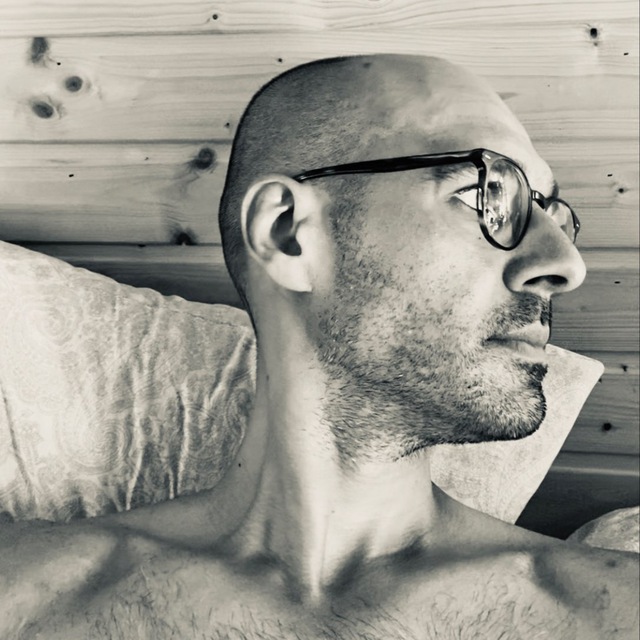Comments
Check out our elevator pitch or sign in
Next Up...
Happy cross referencing
 Andreas
AndreasThe Jewish Question (Crucifixion, Holocaust, Israel)
The role of the Jews throughout history with an emphasis on Communism, Zionism and Multiculturalism.
 iAmRa
iAmRaBeginning the Esoteric Path by Richard Ruach
Transcript
Hello, hello, goyim. No, just kidding. Howdy everyone. Howdy, anon. Howdy, anyone who's listening, sir.
Today I thought I'd talk a little bit more about the path of magic, or more, you know, maybe some things about what it takes. Because there's, you know, study is one thing, but then there's doing. You know, study is good. You want to be well-versed in some scientific things, obviously not losing yourself into the world of science. It's good to know a little bit about biology. It's good to know a little bit about physics, etc., etc., etc.
It's good to read philosophy. You do need proper philosophy if you want to study magic. And what I mean—philosophy—you know, what's the point of philosophy? You know how you meet those people who are like, "Hey man, I'm a good guy, I'm a nice guy, I just treat everyone right and people treat me right," and then like, that's their life philosophy?
People who have that philosophy—people from, I don't know, California or whatever—those types of people are weak. And it's not that they're physically weak. People who have that philosophy cannot withstand tragedy. People who have a simplistic philosophy—the simplistic philosophy can't answer, why evil exists.
Yeah, sure, they may go through life completely fine, and it works for them incredibly well. But then at one point in time, I don't know, their dad's gonna die, or if something truly tragic does happen, something monstrous—like imagine someone in their family gets kidnapped. Like, how brutal that is. When the brutal reality of life sets in, that philosophy is not going to be able to sustain them.
So you need a good philosophy. You need some kind of Nietzschean philosophy or a Stoic philosophy or a Platonic philosophy of how to live life. Or how to—the philosophy in a sense becomes a core, becomes a balancing point, becomes a cornerstone. If I can use a Westworld reference, becomes a cornerstone within yourself.
That is more of a psychology. It's like a foundational pillar for your psychology so that you don't go crazy when the suff—when the big sad—happens. When suffering happens.
Because the path of magic, like in any path—the path to become the richest man in the world, or the path to become the greatest boxer or something—paths like that require so much suffering, so much pain and conscious effort. You're not gonna get there with a weak philosophy like "just be nice to everybody," yeah, "just let people enjoy things," "cool story bro."
So it's good to study a little philosophy. It's good to study a little science. Obviously, art is definitely needed. I'll probably go—I'll probably talk about that a little in detail a little in another talk. But nonetheless, as well as that, you know, as well as having an appreciation and aesthetic sense, as well as appreciating art—filling yourself with edifying art—not just art that I suppose indulges you, but maybe art that—I wouldn't say challenges you, but there's a type of art that it's not empty. It's imbued with something.
The creator imbued that art with a virtue or some kind of psychological meaning. We're kind of jaded nowadays because there are so many post-modern artists and there's so many artists who are just like, "Yeah, I taped a banana to a wall. Whoa, I deconstructed art. There's no meaning, guys. God is dead." Well, yeah, cool story bro.
But real art—things like that, fake art—is gonna be lost in the sands of time, be washed away like tears in the rain. Real art has something eternal in it.
So that's why, if you want real art, yeah, people are making it still. There are still real artists out there. They're probably hard to find. But there are some things that are "good."
One of the problems about the Kali Yuga is things aren't necessarily—the things that you're presented with—aren't necessarily good or bad. They're a mixture of the two. They're good and bad.
So a lot of movies—some movies have a good message, or they actually have a deep philosophy and meaning in them. But then there's also ultra violence or some crazy sex scene halfway through, and it's like, oh okay. But I know maybe that's a plus for you.
But real eternal art—there is something in a lot of ancient stuff: ancient music, ancient architecture, ancient frescoes. There's something in those pieces of art that is eternal.
So I don't know, learning to appreciate them can also help you. Because to go into a slightly deeper reason why, is a lot of spiritual experiences—you can't really explain to normal people. You know, if I look outside the window here and I see a tree, and I point to it, and if you were here and you looked outside and you saw the tree, it would be like, oh, you know, we both have a shared experience of a phenomena.
But if you just experience something, and someone else has never experienced anything like it, how do you explain it to them? You can't. Although—you can. It's called art.
So great poets like Rumi, or someone more in the West like William Blake—they were visionaries. They weren't tormented artists. They were transcendental artists who could have a spiritual transcendental experience, and then that would be the thing that becomes the—what would you call it—the seed of their art. And the art from them flowers and blossoms out of that.
There's something in their art, their poems, that are beating, that's alive, that's just there. You can kind of feel it.
William Blake—you read Marriage Between Heaven and Hell, and it's all this esoteric cosmology of going into the stars and angels, and you're like, what the—what was this guy on? He wasn't on anything. He was on pure awakened consciousness. That's what he was on.
So art's good. Science—science good. Art good. Philosophy good.
One other thing is to also study other sacred texts. Study world religions. Study multiple systems.
But this is one key point, which is a little bit tricky. Because you don't want to read a book on Kabbalah, and then a book on yoga, and then a book on something else, and then a book on Zen Buddhism, and then—because you're not going deep. And you're not going deep. You're just reading a bunch of multiple things and you're just kind of comparing them. And sometimes things make sense, but sometimes they don't, and you just kind of tear your head out—tear your hair out of your head—and you become like me lol.
But the reason—what you should do is you should go deep into one system. You should do its practices and attain a little something. And then, you know, like read—I don't know, choose a system that you really want. Gnosticism or Hermeticism or—I know—Raja Yoga. Like a real system.
Not freaking—not like yoga, going to Lululemon and stretching all the girls. That's not a system of esoteric spiritual development.
Choose your system. Stick with it. Maybe it's Kabbalah. Read the foundational documents. You know, read some Hermetic stuff, blah blah blah, or some Hermetic-Kabbalah stuff, etc., etc.
Then, once you have this competency, you can then read a book on yoga. And then when you go back to your literature, you kind of see certain links. And then you read some Sufism and then go, "Wait a second, some of that Sufi stuff actually matches up with what I'm learning."
Or if you're not—you know, you read like a bunch of Gnostic texts and then you read a book on alchemy. You're like, "Wait, wait a minute" ...what it is now is an illusion. What it is now is an entity that is within you, that is trying to pull you away from clarity. It’s trying to pull you away from concentration.
And so it’s hard. It’s very hard because it’s so easy to fall into that emotion. It’s so easy to be like, “Yeah, screw that guy,” or “Screw her,” or “Screw this thing that happened.” And then you start to fantasize or you begin to relive it. Or you begin to—whatever. You give in to the emotion, and then you’ve lost the candle.
So the idea is, in this first stage, you learn to hold your attention onto a candle, and you’re gonna get distracted by external things. Then you build up enough energy or clarity that the external world no longer distracts you.
Then, the second octave, the internal world begins to distract you—your thoughts, your fantasies, your dreams. And then the third octave is your memories, your traumas, your internal emotional content, your karma, your inner demons, if you want to call them that. That’s what begins to distract you.
So this practice of concentration, of awareness, is so powerful because it eventually burns all that away. You learn to just stare at something—focus, clarity, awareness. And if you can hold your awareness in front of you, like a blade, just held out in front of you like a sword, then, when you go into another system, if you want to go into—I don’t know—some shamanic world or breathwork thing, or you want to chant some weird magical incantation or whatever, that clarity, that awareness, is going to serve you incredibly well.
And it’s also what you take with you to other worlds. It’s the awareness that begins to move and goes into other places. But if you don’t have that cultivated, then you just get swept up in the dream. You get swept up in the fantasy. You get swept up in your own mind.
So yeah, it’s very important. Concentration, awareness, clarity—super important. And it’s something you can begin today. You can begin today, staring at a candle. Just five minutes. Just five minutes.
And every time you get distracted, just bring it back. Just bring it back. Just bring it back. And that’s all. That’s all it is.
And yeah, that’s what I wanted to talk about. A little bit of stuff. A little bit about concentration. A little bit about magic. A little bit about clarity.
Alright, take care everyone. Have a good one. See ya.
 Andreas
Andreas